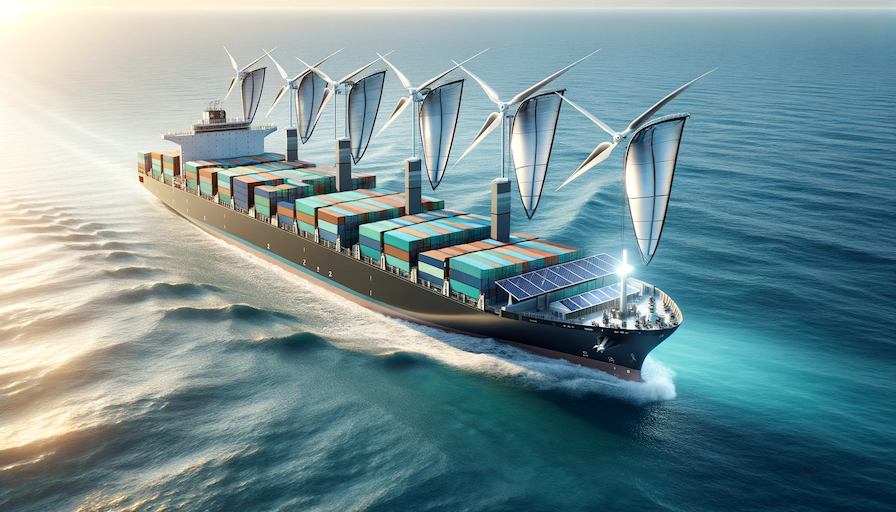Jan22

As a supply chain sustainability expert and the host of the newly minted Sustainable Supply Chain Podcast, I often delve into the intricacies of how the industry can pivot towards greener practices. The topic of reducing emissions from shipping, a crucial component of global trade, is especially close to my heart. In a recent episode with Gautam Jain, CEO and co-founder of GoComet, we uncovered some eye-opening insights on this very subject.
The shipping industry is a linchpin of global commerce, responsible for transporting a staggering 90% of the world’s trade. However, it's also a significant contributor to global carbon emissions. According to the International Maritime Organization (IMO), shipping accounts for nearly 3% of global greenhouse gas emissions [PDF]. In the face of the escalating climate crisis, reducing these emissions is not just a corporate responsibility, but a global imperative.
My conversation with Gautam Jain highlighted a striking fact: up to 50% of the carbon emission goals set by companies can be achieved by simply opting for better shipping routes and suppliers. This revelation, backed by a McKinsey study, underscores the impact of informed choices in the logistics sector. Companies like GoComet are leading the charge by providing technological solutions that enable smarter decision-making in logistics, empowering businesses to significantly cut down their carbon footprint.
The significance of decarbonising shipping extends beyond meeting regulatory compliances or ticking off CSR checkboxes. It's about transforming an entire industry to operate within the ecological limits of our planet. The shift towards more sustainable practices in shipping is not just about changing fuel types or optimising routes, but about a holistic approach that encompasses everything from vessel design to supply chain transparency.
In recent years, there's been a surge in initiatives aimed at greening maritime transport. For instance, the introduction of low-sulphur fuel regulations by the IMO in 2020 marked a significant step towards reducing air pollution. The industry is also exploring alternative fuels like biofuels, hydrogen, and ammonia, and investing in innovative technologies such as wind-assisted propulsion and energy-efficient ship designs.
However, the journey to a zero-emission future in shipping is fraught with challenges. The transition requires substantial investment, not just in terms of capital but also in developing the necessary infrastructure and regulatory frameworks. Moreover, the global nature of the shipping industry means that international collaboration and alignment of policies are crucial for achieving meaningful progress.
As we navigate this transition, it’s vital to keep the conversation going and to share knowledge and best practices. Listening to experts like Gautam Jain provides valuable insights into how technology and innovation are shaping a more sustainable future in shipping.
If you're interested in exploring this topic further and understanding how technology is enabling sustainable logistics, I invite you to listen to the full episode of the Sustainable Supply Chain Podcast. It’s an enlightening discussion that delves deeper into the strategies and solutions for decarbonising shipping.
Together, we can chart a course towards a greener, more sustainable future, where shipping not only drives global trade but also upholds its commitment to the planet. Let's set sail towards that horizon.
By Tom Raftery
Keywords: Emerging Technology, Supply Chain, Sustainability
 Lateral Moves: The Most Overlooked Succession Strategy in Companies
Lateral Moves: The Most Overlooked Succession Strategy in Companies The Asset Play: Timing, Structure & Global Arbitrage
The Asset Play: Timing, Structure & Global Arbitrage  The Orchestra Needs a Conductor: Why Multi-Model Agents Require H2E Governance
The Orchestra Needs a Conductor: Why Multi-Model Agents Require H2E Governance The Role of Memory in Modern-day Business
The Role of Memory in Modern-day Business The Architectures of Permanence: A Comparative Analysis of the "Big Three" AI Strategies (2026)
The Architectures of Permanence: A Comparative Analysis of the "Big Three" AI Strategies (2026)